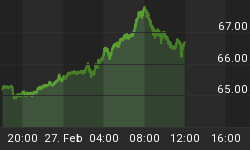In a market where many asset classes from stocks and bonds to commodities and cryptocurrencies have been taking out record highs, greed and Fear of Missing Out (FOMO) have ruled over the past couple of years while good ‘ol fundamentals have taken a back seat.
But with ultra-loose monetary policy coming to an end in the United States and other major world economies, the experts are warning that it's best to tread carefully, a point further driven home by a worrying pandemic, the worst security crisis to face the world since WWII interspersed with nuclear braggadocio, and trade tiffs.
Stretched asset valuations, ultra-high inflation, the Ukraine crisis and the ongoing Covid-19 pandemic are just some of the key reasons why investors really need to hedge their bets.
And, the market experts have arrived at a verdict: defensive stocks, not traditional safe havens such as bonds or gold, are your best bet for capital preservation.
Best Investments To Beat Inflation
In a recent Bankrate survey, most experts have recommended stocks as the better investment option than bonds for overcoming high levels of inflation.
Bankrate’s First-Quarter Market Mavens survey has found that whereas the experts disagree on the sustainability of current inflation levels, there’s a general agreement about the best investment to beat it: stocks.
The U.S economy continues producing nasty inflation surprises. U.S. inflation hit a 40-year peak in February thanks to strong consumer demand and ongoing supply chain disruptions. The Federal Reserve’s favorite inflation calculator recorded a sharp 0.6% increase in February, and further justified the central bank’s plan to move faster to raise U.S. interest rates. The so-called personal consumption price (PCE) index climbed to 6.4% in the 12 months ended in February, up from 6.2% in the prior month, thus marking the biggest monthly increase since January 1982. The Fed views the PCE index as the most accurate measure of U.S. inflation since it takes into account when consumers substitute cheaper goods for more expensive ones.
The more widely used consumer price index (CPI) rose by an even higher 7.9% in the 12 months ended February.
But high inflation is just one of the markers that suggest that the U.S. economy could be hurtling towards a recession, with a flattening yield curve and a slowing housing market also considered worrisome indicators.
An inversion in the yield curve doesn't necessarily trigger a recession, but suggests bond investors are worried about the economy's long-term prospects. Still, there's reason to be concerned because an inverted yield curve has correctly predicted every recession since 1955, with only one false signal in nearly 70 years. And, the only time an inverted yield curve did not lead to a recession, it beckoned something just as bad: the "Great Inflation," which lasted all the way from the mid-1960s into the early 1980s.
So, why are the experts recommending stocks and not bonds and/or gold?
“Managing the inflation risk means not buying bonds and protecting purchasing power by owning mid- and large-cap value stocks,” says Clark A. Kendall, CEO at Kendall Capital.
“An investor should be overweight equities versus fixed income and have a broadly diversified portfolio including companies in the energy and materials sectors, as we think inflation hasn’t peaked yet,” says Chris Zaccarelli, chief investment officer at Independent Advisor Alliance.
The experts recommend gaining exposure to gold and commodities, but also warn about recent run-ups in prices.
“While commodities have performed well in some inflation regimes, many times commodities are the cause of inflation. Therefore, the bulk of their run-up in value tends to happen before broad inflation takes hold, ” says Dec Mullarkey, managing director of investment strategy and asset allocation at SLC Management.
“I would caution against chasing the recent run-up in commodity prices by pursuing a significant allocation to hard assets. Some exposure is fine but be mindful of a quick reversal should we get some encouraging news on the geopolitical front at some point,” says Brian Price, senior vice president of investment management and research at Commonwealth.
We have recommended 5 equities for their defensive qualities:
- Walmart Inc. (NYSE:WMT)
- Costco Wholesale Corp. (NASDAQ:COST)
- Lockheed Martin (NYSE:LMT)
- Northrop Grumman Corp.(NYSE:NOC)
- Utilities Select Sector SPDR ETF (NYSEARCA:XLU)
















